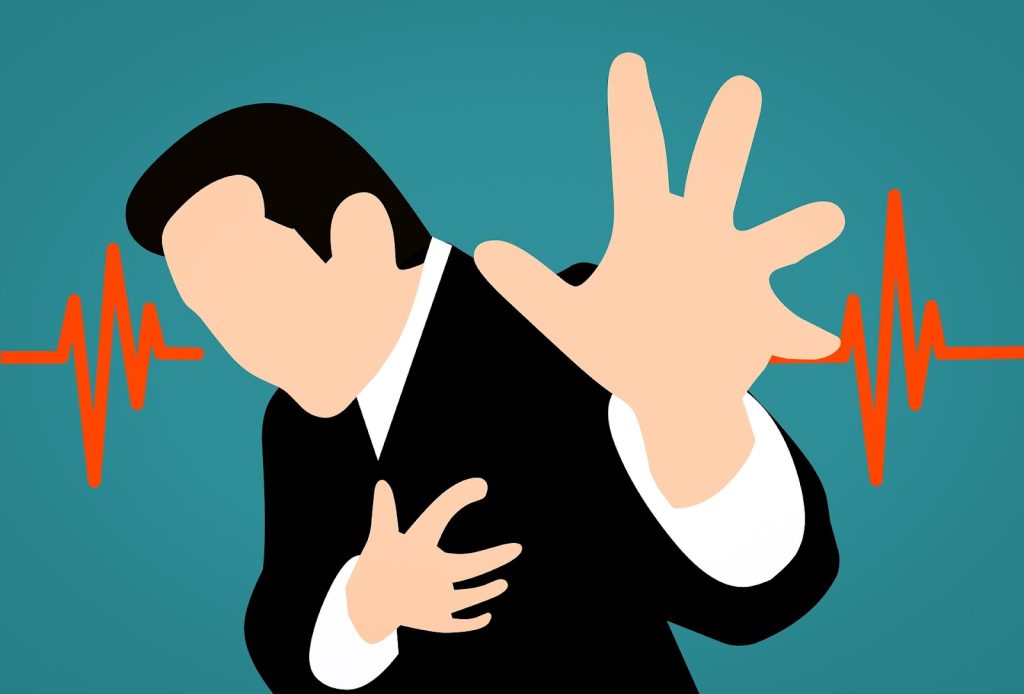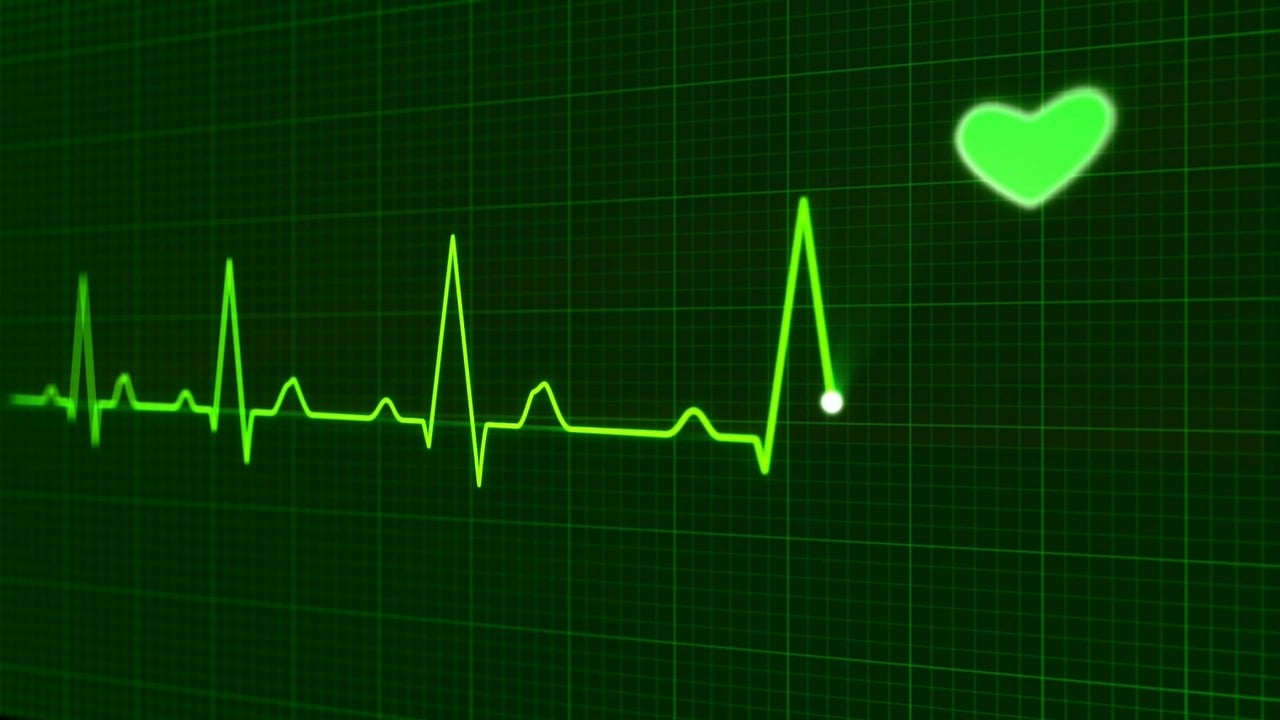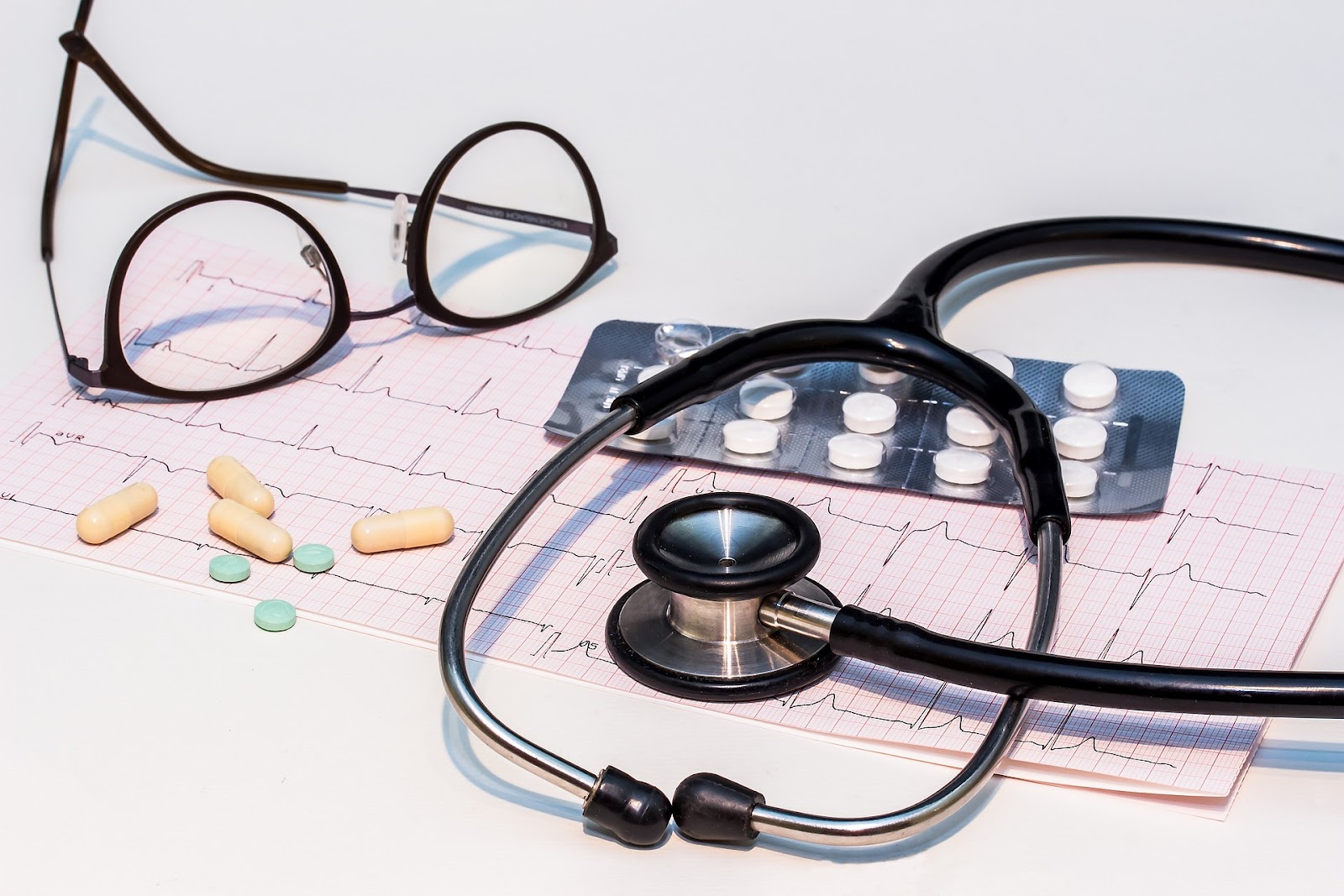You know you have a heartbeat, but not like the music that makes you dance.
You feel as if your heart is leaping around in your chest, like a kangaroo.
You're dizzy, out of breath and tired, but you haven't run a marathon. 😮💨
If this sounds familiar, you may be suffering from cardiac arrhythmia.
Don't worry, you're not alone in this boat, many people suffer from this condition, and we're going to explain everything you need to know about this heart disease.
We'll show you how to identify the signs of cardiac arrhythmia and what you can do about it.
Don't give up hope, you can get back on track. 😉
What is an arrhythmia?
Arrhythmia is a medical term used to describe an irregular heartbeat.
The heart may beat too slowly, too fast or at an irregular rate.
Over time, these irregularities can lead to other health risks and problems. 🥵
Arrhythmias are caused by disturbances in the electrical signals that control the frequency and rhythm of a person's heartbeat.
Diagnosis begins with a thorough examination of the patient's medical history. electrocardiogram (ECG).
Once diagnosed, treatments can range from simple lifestyle modifications, such as avoiding caffeine and alcohol, to drugs and other interventions for more serious conditions, such as pacemakers, or surgery and ablation techniques, depending on the underlying cause.
Does this heart rhythm disorder tire the heart? 🫀
Cardiac arrhythmia can cause heart fatigue, as it prevents the heart from beating efficiently.
When the heart rate is irregular or accelerated, the heart has to work harder to pump blood throughout the body.
This can lead to an increased demand for oxygen and nutrients for the heart, which can cause fatigue. 😮💨
What's more, when the heart is tired, it can become less efficient at pumping blood, which can lead to circulation problems.
It is therefore important to consult a doctor if you think you are suffering from cardiac arrhythmia, and to follow the recommended treatments to regulate your heart rhythm and reduce heart fatigue. 🧑⚕️
How many beats should a "normal heart" beat per minute?
The "normal" heart rate for an adult is between 60 and 100 beats per minute, but this can vary from person to person.
Visit physically active people generally tend to have a faster resting heart rate than those who don't, with athletes sometimes recording a resting heart rate of around 40 beats per minute. 🏃
Conversely, rested people may find that their resting heart rate is closer to 60-80 beats per minute.
That said, the speed or slowness of a healthy person's heart depends very much on the individual; any significant deviation from the resting frequency of 70-80 should be discussed with a cardiologistas it may indicate an underlying condition.
What are the risks of arrhythmia: tachycardia, bradycardia, atrial fibrillation & others? 🤔
There are several risks associated with cardiac arrhythmia, depending largely on the form of arrhythmia and the severity of the condition.
Some forms of arrhythmia can cause unpleasant but generally benign symptoms, while others can cause serious complications.
The most common risks of arrhythmia include:
👉Atrial fibrillation, which can increase the risk of stroke.
👉Ventricular tachycardia, which can cause blood circulation problems and heart failure.
👉Bradycardia, which can cause dizziness, fainting and blood circulation problems.
👉Arrhythmias can also cause excessive fatigue, dizziness and fatigue. heart palpitationschest pain and breathing problems.
It's important to note that certain risk factors such as smoking, high blood pressure, diabetes and obesity can increase the risk of cardiac arrhythmia. 🚬
It is therefore important to consult us if you have symptoms of arrhythmia or risk factors for this condition.
What's the difference between a severe arrhythmia and a transient arrhythmia?
A severe arrhythmia is a type of abnormal heart rhythm that can be dangerous, whereas a transient arrhythmia is generally harmless.
Severe arrhythmias can cause the heart to beat too fast or too slow, leading to dizziness, chest pain, fainting and even death...
Transient arrhythmias, on the other hand, are generally brief and harmless.
They can cause unpleasant sensations, such as palpitations, but do not expose individuals to serious medical problems.
Treatment of these types of arrhythmia may include changes to your lifestyle - such as theincreased physical activity or reducing caffeine consumption - or medications and other interventions recommended by a physician. 💊
While the symptoms of an arrhythmia can be alarming and cause intense fear in sufferers, it's important to remember that not all arrhythmias are serious.
Knowing how to recognize an irregular heartbeat can help relieve anxiety and, ultimately, improve overall health. 😌
How can I tell if I have arrhythmia: signs and symptoms?
Cardiac arrhythmia is a heart rhythm disorder that can cause irregular, fast or slow heartbeats.
There are different types of arrhythmia, each with different signs and symptoms. 🫀
Common signs and symptoms of arrhythmia include:
👉Heart palpitations
👉Rapid or irregular heartbeat
👉Dizziness, vertigo
👉Fainting spells
👉Mood swings
👉Shortness of breath
👉Chest pain
If you experience any of these symptoms, it is important to consult our cardiologists to assess the cause of your symptoms and plan appropriate treatment.
It's important to note that some people have no symptoms at all and discover arrhythmia during a routine check-up.
It is therefore essential to consult a doctor regularly for general health check-ups. 🧑⚕️
What triggers a cardiac arrhythmia?
A heart arrhythmia attack can be a frightening and dangerous experience. 😨
It's triggered when there's a problem with the electrical signals that control your heartbeat.
This means that your heart rate begins to increase or decrease irregularly.
Common triggers for cardiac arrhythmia include emotional stress, overwork, stimulants such as caffeine and nicotine, and medical conditions such as high blood pressure or thyroid disease.
In most cases, if you are aware of these risk factors and take steps to manage them through regular check-ups and self-care, you can reduce your risk of a crisis. 🙂
When to worry about arrhythmia: dizziness, palpitations, fatigue, heart beating too fast & others?
Arrhythmia is an irregular heartbeat that may indicate a potentially serious medical problem.
While some arrhythmias are completely harmless and pass quickly, others can cause symptoms such as chest pain, weakness, dizziness and fainting. 😵💫
It is important to be aware of signs that require immediate assessment by a healthcare professional.
The following signs could be indicative of a dangerous arrhythmia and an urgent appointment with the doctor should be made:
👉Shortness of breath, chest pain lasting more than 8 minutes
👉Loss of consciousness
👉Dizziness that cannot be explained by mild dizziness or lightheadedness
👉Heart palpitations lasting more than an hour
Being aware of these potential warning signs can help protect your health in the long term.
Can cardiac arrhythmia be cured?
Cardiac arrhythmia can be a frightening diagnosis, and one of the first questions people ask is whether it can be cured.
The good news is that, in many cases, cardiac arrhythmia can be treated. 😀
However, as with most medical problems, the best approach is proactive prevention.
While it's true that some arrhythmias have no known cure, lifestyle changes such as exercise and healthy eating can help protect against future episodes.
In addition, there are pharmaceutical solutions that can prevent or reduce symptoms in people already suffering from arrhythmia. 💊
Overall, with appropriate preventive measures and modern treatments, we can look forward to a brighter cardiovascular future.
Don't wait, take the initiative and contact us now to make an appointment !
The health of your heart is essential to maintaining a full and healthy life, and at the Centre d'évaluation cardiovasculaire de Laval, we're committed to ensuring that your well-being is not neglected 🙂





